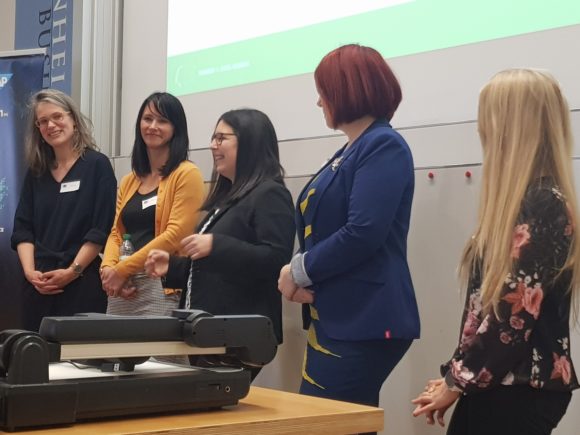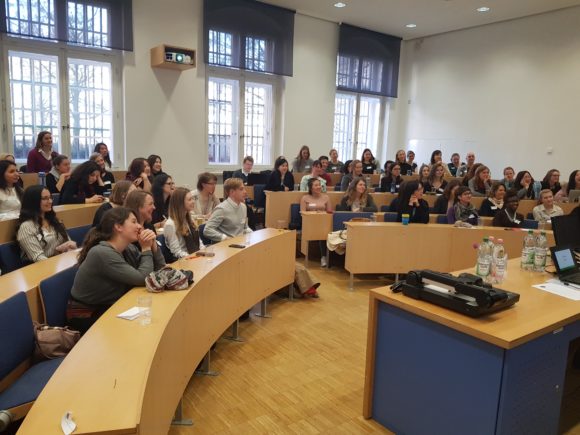With this blog post, we would like to encourage young female talents to be brave, go new ways and make their career in the applied data science field. OK, we are female data scientists and with that are really data-driven. So here are some interesting facts about women in the tech industry before we turn to our personal journeys.
Some key facts
Recently, the tech industry has been rated as a very man-dominated world. According to the 2018 Women in tech index, only 14,09% of the tech jobs in Germany were occupied by women.
This topic is not new. It is very important to encourage more women to pursue a career in IT nowadays and to break stereotypes in early education that would lead to a more inclusive workforce later on. According to the OECD Empowering women in digital age report (2018), women are significantly less likely to choose natural sciences, engineering, and ICT studies. In Germany, they only accounted for 17.6% of all students graduating in these fields at tertiary level in 2015 – fields which are particularly relevant for the digital era.
Such discrepancy leads to a systemic under presentation of women in IT jobs as well as top management and academic careers. According to PwC’s Women in Tech, only 3% of females say a career in technology is their first choice and only 5% of leadership positions in the technology sector are held by women.
Good news
However, emerging economies show encouraging counter-trends: with more than 260 000 female tertiary ICT graduates in 2015, India is the country closest to gender parity in this field, followed by Indonesia.
Also, we see an increasing number of initiatives that aim at changing this scenario and establish more diverse working places also in tech.
According to recent studies, women particularly benefit from collaboration over competition. Moreover, there is a tendency of opening more and more female network communities where you get support and are inspired by great examples in such industries as science, technology, engineering or IT.
Not only we see the female groups that support each other at the work places. The journey starts at universities where such communities strive to achieve higher number of women in computer sciences. Recently, we had a chance to participate at one of such initiatives ourselves – Women in Data Science (WiDS). The WiDS initiative aims to inspire and educate data scientists worldwide, regardless of gender, and support women in the field. WiDS started as a conference at Stanford in November 2015. It has spread substantially since then with 150+ ambassadors hosting WiDS events worldwide, featuring leaders in the field talking about their work, and their journeys. This conference was hosted also in Mannheim a few months ago. Camelot was represented there with female data science experts, talking about their experiences.
It has been a fantastic exchange of experiences and a great encouragement to pursue a data science career. As a matter of fact, all ladies that presented at the panel discussion come from various backgrounds and neither of them had started their career directly with AI or IT. It has been a combination of social sciences, management, marketing, psychology, statistics and many more – each field has contributed to the career journey, and all presenters have been brave enough to always try something new.
Lastly, we believe that technology organizations need to highlight how technology could be a good choice and attract more women as well. Camelot’s core values encompass respect, support, collaboration and diversity. It is crucial for us to have very diverse teams in order to consistently be innovation leaders. We believe that having female experts onboard gives us a more encompassing view on specific business fields. Why not check it out yourself? We are also very happy to share our personal experiences with you!
We would like to thank Maíra Ladeira Tanke for her contribution to this article.



